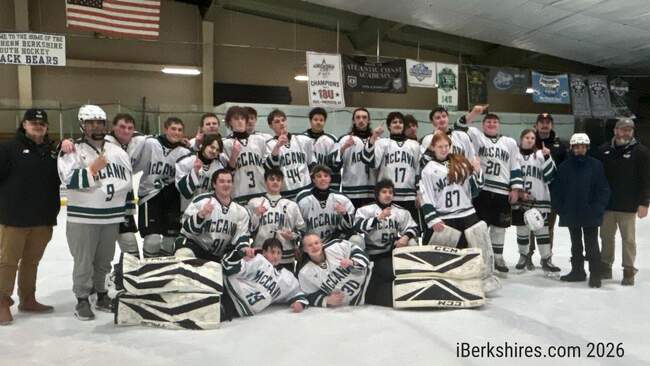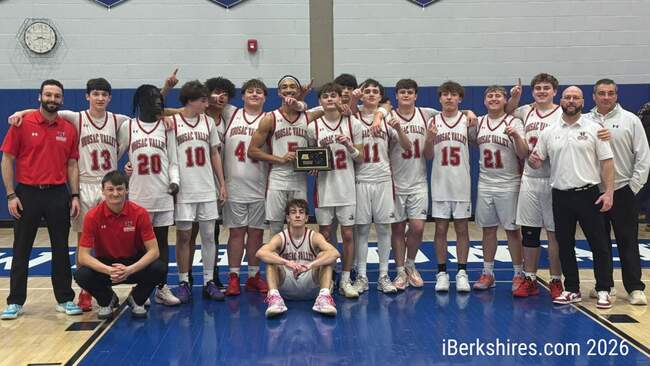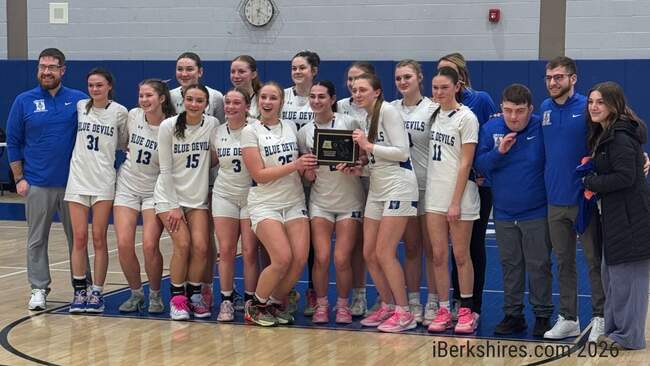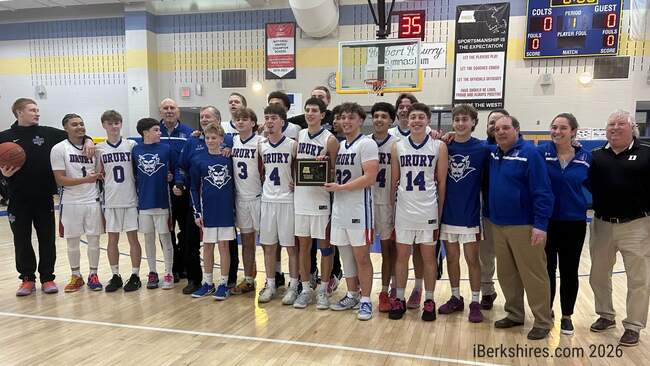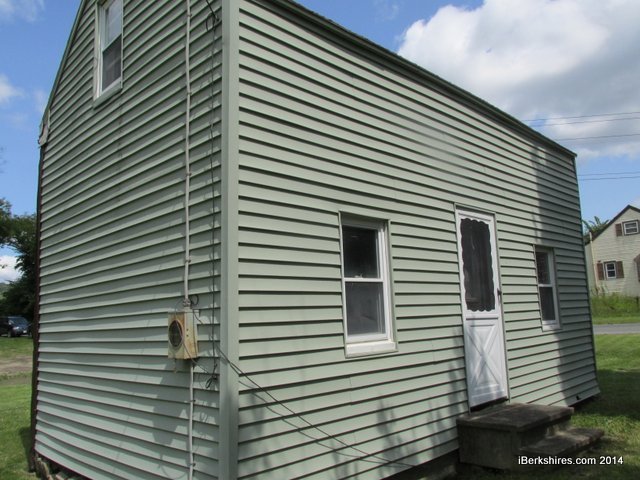
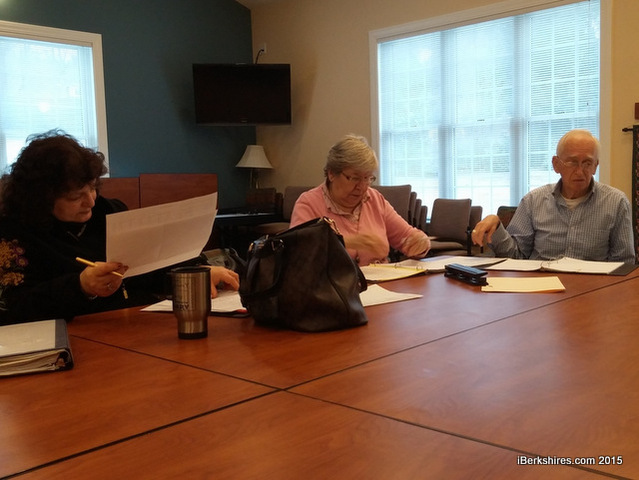
Dalton Historical Commission Prepares for Hoose House Dig
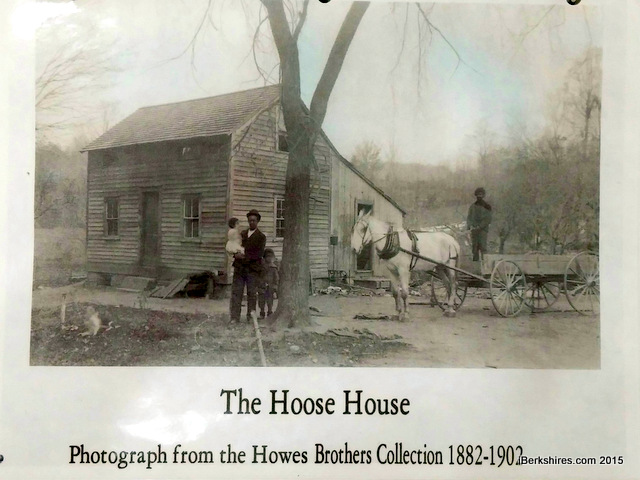 |
|
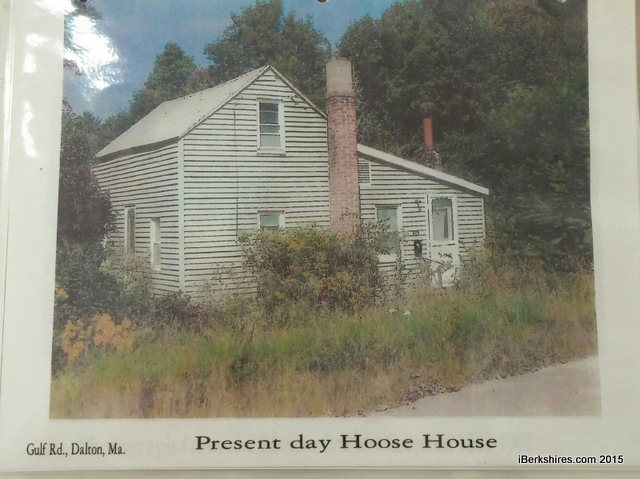 |
Above, a photograph of the historic Fitch-Hoose House from the 19th century. Left, the building before the back addition was removed and the lawn cut back. |
DALTON, Mass. — Preparations for the Fitch-Hoose House renovation continue to progress, with a walk-through scheduled for Wednesday, April 15, and discussions with archaeology teams under way.
At Tuesday's Historical Commission meeting, Chairman George White said he "[wishes] everyone could have seen the original Hoose House" when it was in its peak condition in the late 1800s.
Occupied by the African-American Hoose family from before the Civil War, the building had ties to the Underground Railroad. The Historical Commission is determined to restore it to as authentic a model as possible.
According to state regulations, their application for restoration only allows for "in kind" remodeling – which means no electricity or indoor plumbing.
"When the architects looked at this, they said we had to renovate this in kind, which means we'd have to find the same type of wood if we had to replace wood, and a stain that would match," said commission secretary Gail Pinna. "And if you go on 3rd street [in Pittsfield] and you see the Samuel Harrison House, it now has white siding; it's very 'new-looking.' Inside they have what I call 'Sherwin-Williams' wallpaper, because it's all washable.
"I know in the 1800s they had wallpaper, but it wasn't washable."
Floorboards at the Samuel Harrison House are also equipped with electrical outlets, and there are multiple restrooms – but because there are offices on the top floor, the zoning for the Harrison House is a bit different from Dalton's project.
"They did a beautiful job – it's just brand new," said Mary-Jane Caliento. The Dalton commission is hoping for an entirely authentic historical experience instead.
"Churchill Cotton [of Pittsfield] had a great deal to do with [the renovation of the Samuel Harrison House]. He took us on a tour of it one day, so we could see how their house looked – how we might want this one here to look," Pinna said.
"But 'ne'er the twain shall meet.'"
In planning their purely historical renovations, the Historical Commission finds grant funds to be necessary – though applying for them is turning out to be a time-consuming and complicated process.
The private Berkshire-based 1:1 matching grants they are pursuing are only guaranteeing $5,000 unless there is good cause to raise up to, potentially, $10,000. It received an initial boost of $180,000 in state grant funding last fall.
"You have to fill out an entry form to start off, that's the first step of the grant; and the project has to have a humanities scholar attached – must have a Ph.D in humanities," member Joyce White told the commission.
The commission is finding this second step to be an obstacle, but is going to first inquire at Berkshire Community College, and go from there. They recognize that hiring someone with an advanced degree to head up their project requires more up-front investing than they are prepared for - which White calls "problematic."
"Financially, it's not feasible," Pinna admits.
They will also need a budget proposal outlining the various steps to their project and estimated costs, dates of completion, and a midway report.
Though complex, grants are their only real source of funding at the moment.
According to commission members, the Samuel Harrison House "really incurred a lot of money; it was always in the paper. Businesses [and counselors] were giving them quite a bit of money. I haven't seen any businesses in Dalton step forward and say, 'Could you use something, would you like a few thousand?'" joked Caliento.
They are hoping for private donations from local business or history enthusiasts, but are not counting on that before diving into renovations.
April 15 marks the launch of the archaeological digs that will hopefully uncover some interesting artifacts from the Hoose House's heyday.
"Everybody back then had burn barrels ... they'd just use them until they disintegrated. They would just spread [the ashes] out on the lawn, so you never know what they'll find – chipped pieces of china" and other archaeological finds, said Pinna excitedly.
Caliento is looking forward to the walkthrough on that date because "all the contractors that are interested will be there" to examine the site and possibly bid for the opportunity to be a part of the project.
The other commission members are looking forward to being at the walkthrough just to observe – though White wondered how helpful that would be.
"[We'd say], I think you should dig over there!" he laughed, and the term "sidewalk superintendents" was suggested to more rounds of laughter.
While their attitude was high at the meeting, they haven't forgotten some of the hardships they've faced during the course of this venture: such as the time a large pile of bricks from the house were stolen.
"[We] cleaned the bricks – because we were going to use them – and piled them so nicely ... someone thought they looked very good and they took them. They were the original bricks that were on that house," Pinna recalled.
And considering their challenge of finding "in kind" materials to renovate this historical landmark, a theft of that magnitude was no small thing.
Tags: historic preservation, historical building, historical commission,

